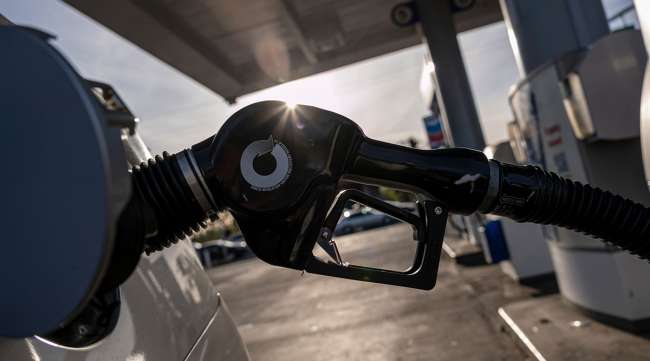Bloomberg News
White House Weighs Fuel Export Limits as Pump Prices Surge

[Stay on top of transportation news: Get TTNews in your inbox.]
Top Biden administration officials are weighing limits on exports of fuel as the White House struggles to contain gasoline prices that have topped $5 per gallon.
Discussions around capping gasoline and diesel exports have picked up in recent days, as President Joe Biden intensified his criticism of soaring oil company profits, said people familiar with the matter who asked for anonymity to describe private conversations.
Limits under consideration would fall short of a complete ban on foreign sales of petroleum products, with gasoline exports averaging 755,000 barrels a day so far this year, according to the U.S. Energy Information Administration. That’s up from 681,000 barrels a day during the same period in 2021.
The discussion comes as White House officials consider an array of options for taming gasoline prices that pose an increasing political risk for Biden and Democrats struggling to maintain control of the House and Senate during the November midterm elections. White House Press Secretary Karine Jean-Pierre said June 16 the president is open to using emergency wartime powers under the Defense Production Act to “lower costs at the pump.”
It wasn’t immediately clear how advanced the discussions are; at least one person was told any new export controls are not imminent.
Want more news? Listen to today's daily briefing above or go here for more info
An export ban could conflict with other geopolitical priorities. Biden has repeatedly highlighted the U.S. commitment to help ensure European allies have sufficient energy supplies amid the war in Ukraine. U.S. restrictions on diesel exports to Europe could create new friction with allies overseas as they wean off of Russian supplies. And analysts have said export limits are unlikely to lower the price of gasoline in the long run.
A White House spokesman didn’t immediately respond to a request for comment.
Energy Secretary Jennifer Granholm is set to meet with oil refiners June 23 on the issue, according to people familiar with the plan. Biden directed Granholm to hold the session and asked U.S. oil companies to provide her with “concrete ideas that would address the immediate inventory, price and refining capacity issues.”
Other actions that have been discussed in recent weeks include waiving gasoline from anti-smog rules that require low-volatility fuel in the summer, two people said. The shift could reduce costs by allowing fuel blenders to mix in lower-cost butane.
Staff from the National Economic Council have considered legal avenues for restricting exports, including possibly under the 2015 law that unleashed overseas sales of crude, one person said.
If imposed, any limits could be calibrated to prior export levels, one person said. That approach would effectively limit exports to ensure future increases in fuel production stay within the US.
There is no apparent explicit presidential authority to ban oil products exports, but the president could tap vast emergency powers, ClearView Energy Partners LLC said in a research note.
Refiners have argued against export controls, insisting there is a disconnect between the president’s desire to boost U.S. refining capacity and cutting off overseas sales that justify investments.
Top oil trade groups also have said recent refining capacity reductions have been stoked by Biden administration policies designed to limit gasoline demand and transition from fossil fuels.
In meetings with administration officials in recent weeks, refining executives have stressed that it’s incongruent to both talk down capital investments in the refining sector while pleading for more of them, two of the people said.
—With assistance from Chunzi Xu.




